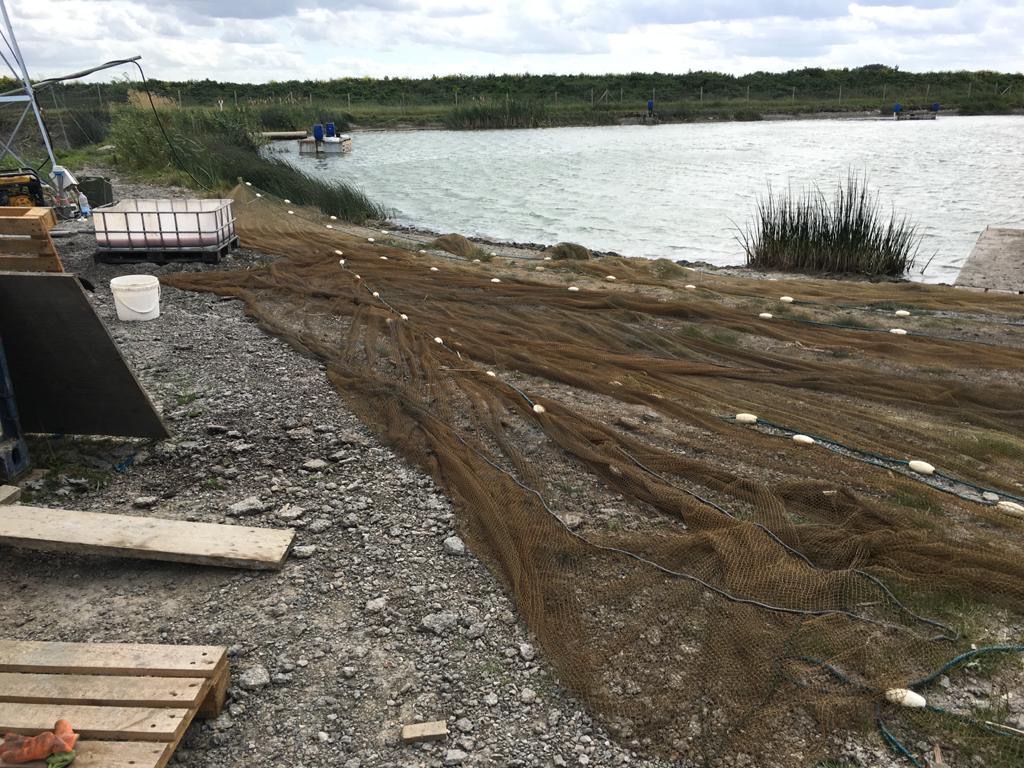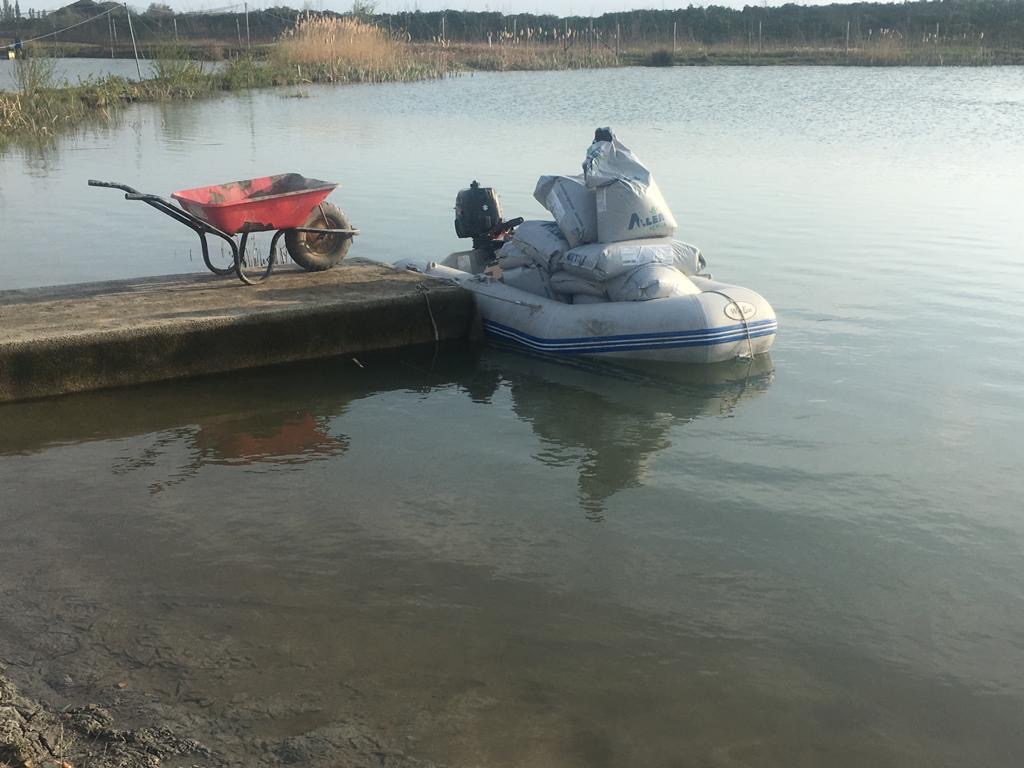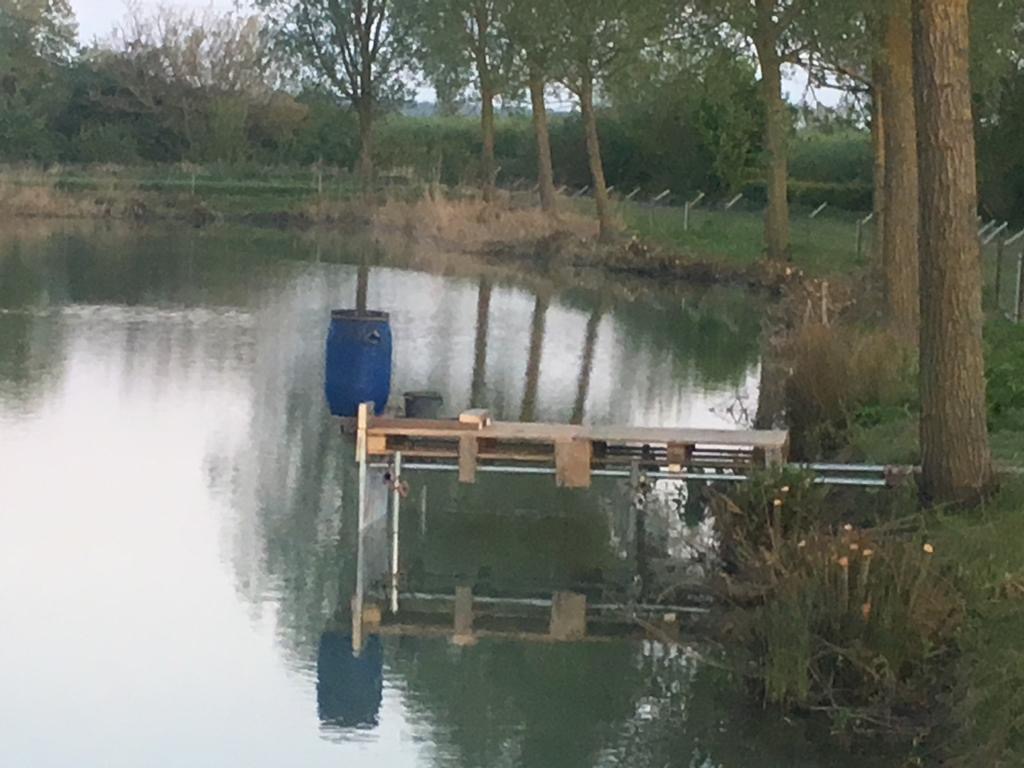A Cefas registered fish farm with sites across Cambridgeshire and Lincolnshire.
NG Fisheries are a Cefas registered fish farm supplying quality carp to UK Fisheries. Our stock ponds span across sites in Cambridgeshire and Lincolnshire. These ponds are home to various strains of carp across multiple year classes.
The name NG Fisheries rather than fish farms rightly suggests we’re more interested in creating fisheries than fish farming, in fact although we are Cefas registered as a fish farm we aren’t really farming fish, we buy tiny carp to grow on, we don’t have a hatchery. We also don’t have premises where we can set big tanks up for customers to pick individual fish that have been netted days, or weeks before, we don’t like this and are small enough that we don’t need to. We’re a little more grass roots than that, most of our customers often come and help net, sort then transport their own fish. We can and do deliver but prefer the way we do it, holding the fish we net for a maximum of 3 days in holding pens in the ponds they are from.

Stock Ponds in Cambridgeshire
Having water constantly pumped through the stock pond at Cambridge is a plus in many ways but during high summer caused issues with O2 levels. The water being pumped in is very low oxygenated ground water from the adjacent quarry, that sits in shallow trenches at the bottom of the quarry, being heated by the sun so at times during high summer we had to cut the feeding almost to zero.
However, this warm water seems to encourage daphnia and the pond gets thick with it, and the carp love it. So even though we have to cut the pellet feeding right back the carp feed their heads off on the daphnia. The first time we saw them really going mad feeding near the surface with their backs out was really scary, they looked like they were gasping for oxygen but in fact they were just preoccupied with sucking huge amounts of daphnia in.

Stock Ponds in Lincolnshire
Good feeding is key and we now have a lot of feeders each feeding 6 times a day. Little and often definitely being the best, almost eliminating the “pellet belly” greedy fish that just sit under the feeders bullying the less dominant carp. Also, the really heavy bulk feeding by hand once a week was seen to alter the water quality where the carp greedily ate the feed on the drop, adding more automated feeders eliminated this so we added even more feeders.

Feed wise for the last two years we have only fed Aller Aqua pellet, with a little boilie, wheat and flaked micronized maize as a little treat if the feeding conditions are exceptional. As near as we can work it out the automated feeders feed up to 1% of the overall body weight, we never feed harder than that. All the ponds also have reasonable natural food larders and the fish are often seen colouring up areas where we haven’t put feed into or slurping daphnia in just under the surface. We could easily up the feed ratio’s but would rather not, preferring to let the fish look for the extra food they might want.